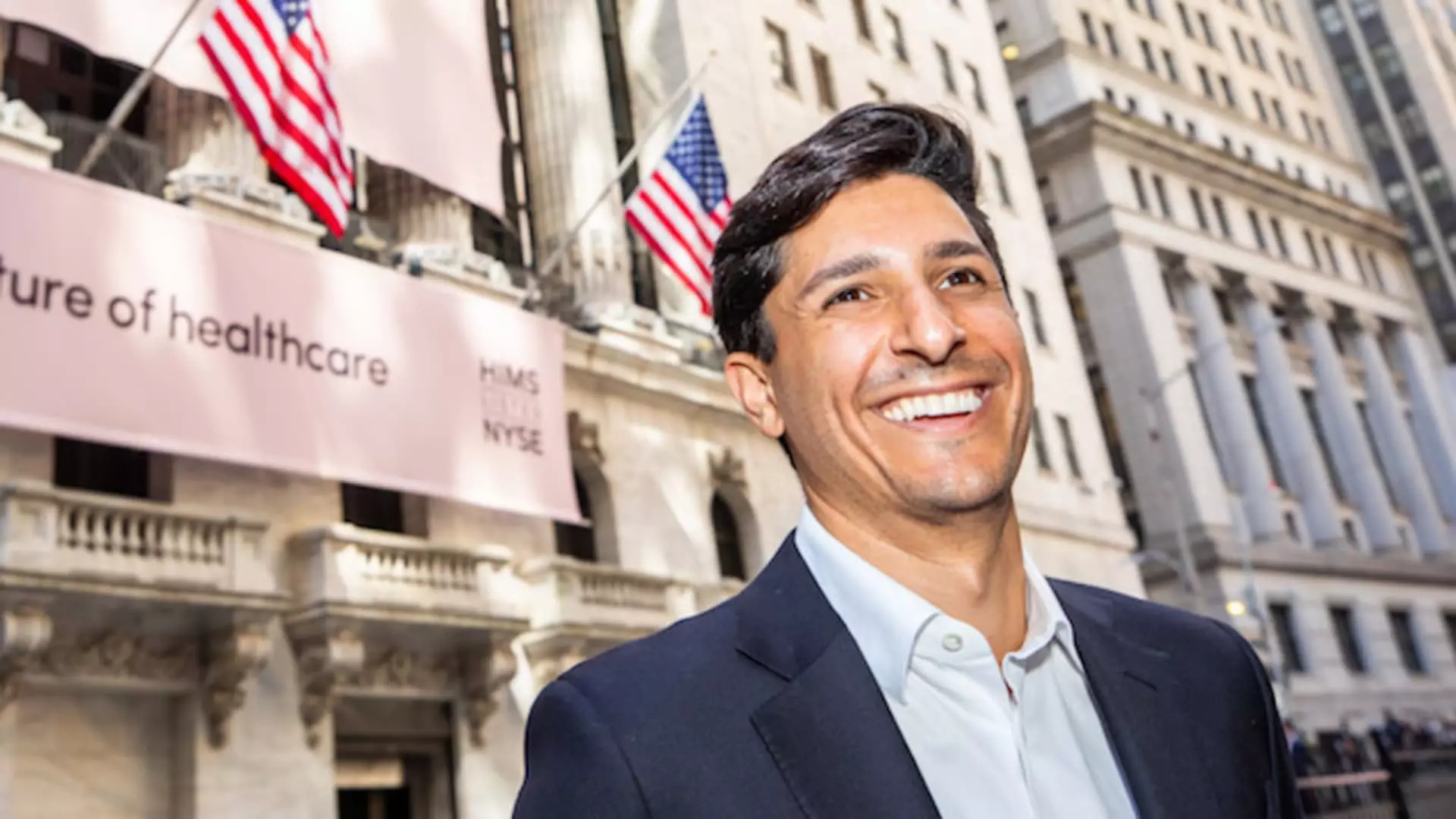In an age where the convergence of corporate interests and political affiliations is more evident than ever, the recent $1 million donation by Hims & Hers Health to President-elect Donald Trump’s inauguration fund raises numerous questions. This act of financial support not only highlights the intricate relationship between the tech industry and political power but also reflects broader discussions surrounding healthcare in the United States.
Hims & Hers Health is far from being the only tech company to invest in political goodwill, signaling a trend among major players in the digital health sector. Industry giants such as OpenAI and Meta also donated similar sums to Trump’s inaugural fund, as did executives from Amazon and Apple. This alignment of financial backing with political leaders suggests a strategy that many businesses employ: fostering relationships that might pave the way for favorable legislation or regulations. Companies are increasingly aware that a proactive approach might mitigate potential risks associated with regulatory oversight or competitive disadvantages.
However, is this arrangement equitable, and does it risk further embedding corporations into the political fabric? Critics argue that such financial contributions can distort the democratic process, leading to greater prioritization of corporate interests over public welfare. As these tech firms back political figures, one must consider the implications for consumer trust and the ethical dimensions of using financial power to gain influence.
Hims & Hers emerging as a prominent player in the digital health sector is indicative of the shift toward more accessible healthcare options. Their foray into compounded semaglutide for weight loss mirrors a growing trend where companies leverage technology to offer treatments that were traditionally limited to conventional settings. The emphasis on affordability with compounded alternatives to high-cost brand medications demonstrates the potential of health tech to democratize access to care.
Yet, this accessibility comes with caveats. While compounded medications pose a cheaper alternative, the long-term safety and efficacy remain subjects of intensive scrutiny. Critics including Robert F. Kennedy Jr., who has been designated to lead the Department of Health and Human Services, have openly questioned the reliance on pharmaceutical solutions for obesity, advocating instead for lifestyle changes. Contradictory perspectives within the administration itself further complicate the narrative surrounding GLP-1 medications and their public acceptance.
As the debate heats up regarding the use and accessibility of GLP-1 medications like semaglutide, the political landscape also shifts. Dr. Marty Makary’s nomination to lead the FDA raises eyebrows due to his background with Sesame, a telehealth company linked to prescribing these alternatives. His appointment could signal a more permissive regulatory environment for compounded drugs. On the other hand, the criticisms voiced by prominent political figures suggest a warning that the implementation of such treatments might come under tighter scrutiny.
Elon Musk’s endorsement of making GLP medications more affordable adds another layer to the dialogue. His sentiment reflects a growing recognition of the potential healthcare benefits these medications could afford, primarily in enhancing quality of life. It’s essential to balance these viewpoints with a critical understanding of how health equity can be maintained given the nuances surrounding affordability and access.
As Hims & Hers and similar companies navigate these waters, it falls to consumers, the media, and policymakers to hold both corporate and political entities accountable. Transparency in donation allocations and the motives behind them is vital. Engagement in discussions on healthcare reform should reflect real public needs rather than corporate interests masquerading as advocacy.
Ultimately, the link between digital health companies and politicians must be framed within a broader understanding of healthcare as a right versus a privilege. Striking the right balance between innovation and public health equity will define the landscape of healthcare in the years to come. In this complex evolving landscape, vigilance is required to ensure that technology serves the broader public interest, steering clear of becoming a mere commodity entangled in the web of political finances.


Leave a Reply